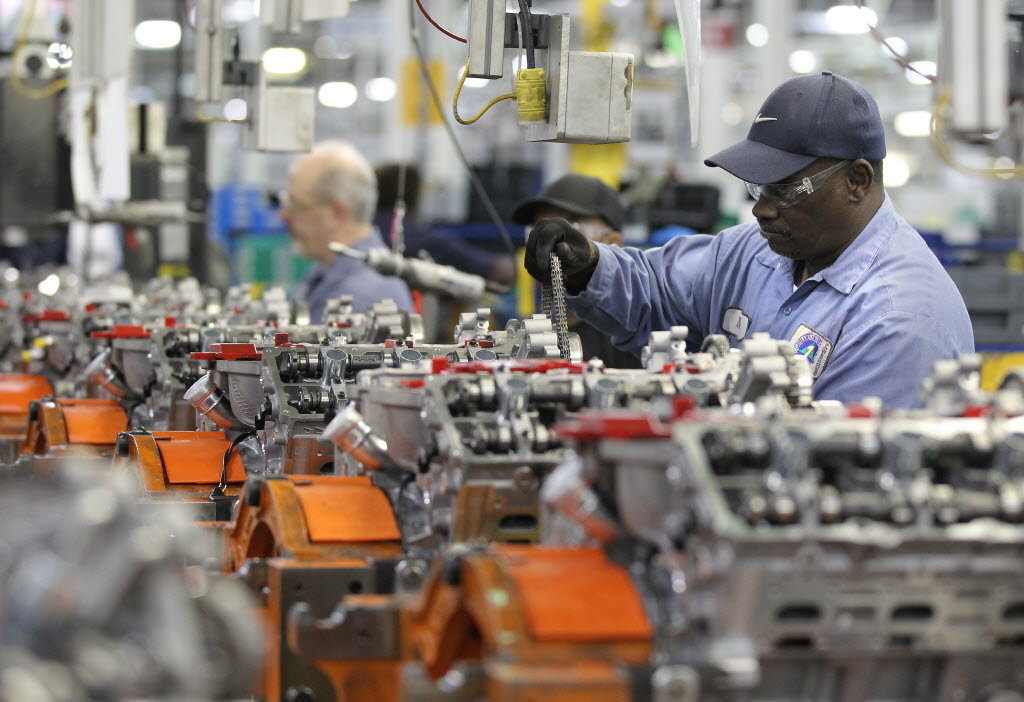Manufacturing Jobs: Examples, Types and Changes
 Definition: Manufacturing jobs are defined as those that create new products either directly from raw materials or components. These jobs are usually in a factory, plant or mill but can also be in a home, as long as products, not services, are created.
Definition: Manufacturing jobs are defined as those that create new products either directly from raw materials or components. These jobs are usually in a factory, plant or mill but can also be in a home, as long as products, not services, are created.
For example, bakeries, candy stores, and custom tailors are considered manufacturing because they create products out of components.
On the other hand, book publishing, logging, and mining are not considered manufacturing because they don't change the good into a new product. Construction is in its own category and is not considered manufacturing.
Types of Manufacturing Jobs
Here's a summary.
- Food, Beverage, and Tobacco
- Textiles, Leather, and Apparel
- Wood, Paper, and Printing
- Petroleum, Coal, Chemicals, Plastics and Rubber
- Nonmetallic Mineral
- Primary Metal, Fabricated Metal, and Machinery
- Computer and Electronics
- Electrical Equipment, Appliances, and Components
- Transportation
- Furniture
- Miscellaneous Manufacturing
The types of jobs that are in these industries. Here's a quick list:
- Assemblers and Fabricators
- Bakers
- Dental Laboratory Technicians
- Food Processing Occupations
- Food Processing Operators
- Jewelers and Precious Stone and Metal Workers
- Machinists and Tool and Die
- Medical Appliance Technicians
- Metal and Plastic Machine Workers
- Ophthalmic Laboratory Technicians
- Painting and Coating Workers
- Power Plant Operators
- Printing
- Quality Control
- Semiconductor Processors
- Sewers and Tailors
- Slaughterers and Meat Packers
- Stationary Engineers and Boiler Operators
- Upholsterers
- Water and Wastewater Treatment
- Welders, Cutters, Solderers
- Woodworkers
Trends in Manufacturing Jobs
Manufacturing processes are changing, and so are the job skills that are needed. Manufacturers are always searching for more cost-effective ways of producing their goods. That's why, even though the number of jobs is projected to decline, the jobs that remain are likely to be higher paid.
However, they will require education and training to acquire the skills needed.
That's for two reasons. First, the demand for manufactured products is growing from emerging markets like India and China. McKinsey estimated this could nearly triple, to $30 trillion, by 2025. These countries would demand 70 percent of global manufactured goods.
How will this demand change manufacturing jobs? Companies will have to offer products specific to the needs of these very diverse markets. As a result, customer service jobs will become more important to manufacturers.
Second, manufacturers are adopting very sophisticated technology to both meet these specialized needs and to lower costs. Here are six:
- Nanotechnology is creating a new era of microelectronics.
- Lightweight steel, aluminum, and carbon fibers are making cars lighter and more fuel-efficient.
- Bio-engineering creates more customized pharmaceuticals.
- 3D printing creates prototypes by combining small particles rather than by casting or stamping. However, they are being used more and more to manufacture specialized aerospace components and replacement human organs.
- Robots are becoming more sophisticated.
- Big data is being used to analyze customer trends and guide product development.
Originally found on thebalance.com
By: Kimberly Amadeo
